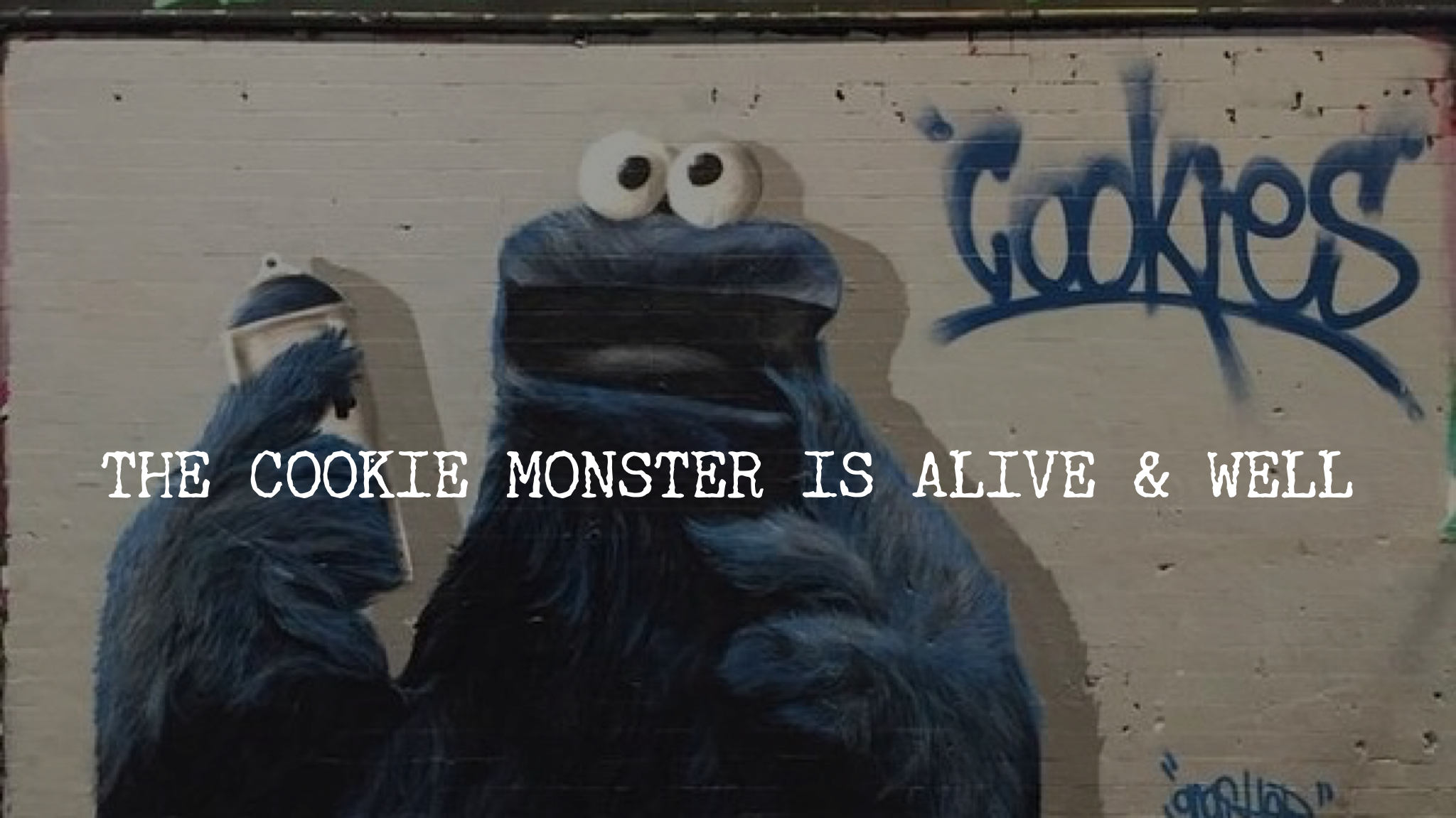The Internet is getting uglier every year. Whether it is the amount of ads on websites, social media feeds and surrounding thumbnails, the cookie pop-ups on every single website with the worst and ugliest offenders being the news media and even government websites, it is getting worse. But you never noticed, because it has been creeping up on use steadily over the years. Just stop and have a mindful look right now at the website you are on. Not this one of course, this one (Medium) hasn’t yet been polluted. Maybe Ev Williams - CEO at Medium has learnt from his days at other tech firms?
Do you know The Cookie Monster?

I never knew him as well as I do now, thanks to HubSpot for making it clearer for me. They shared a blogpost with me, which contained the following key bit of text.
What’s the difference between a first party and a third party cookie?
The difference between first- and third- party cookies is how they’re saved and who can see them. When a website saves a cookie, it’s given a domain. If the domain on the cookie matches the domain of the website setting it, it’s a first party cookie. If the domain is different, it’s a third party cookie. First party cookies can only be seen when on the website that set it, where third party cookies are visible from any website.
This is why most ad tools use third party cookies; they enable a tool to track a user across multiple websites, and they can use that cross-site data from any other website to tailor ads.
One specific example:
Let’s say you’re on a website, a.com. It’s an ecommerce business. You put something in your shopping cart. When you come back later, the site remembers you, and keeps your same items in the shopping card. That’s the result of a first party cookie doing its job. The cookie was set by the same domain you’re on.
On the other hand, let’s say you’re on a.com, and the page you’re on contains an iframe from a different website (b.com). Cookies set by b.com accessed from an a.com page are third-party cookies. Accessing them from a.com is a cross-site request. This iframe might show you an ad via Doubleclick — — they track you across multiple websites, and serve you ads wherever you go online.
Every single time I click on a news story, that someone has shared on social media and I click through to the news website, I am confronted with a massive cookie notice, rendering the news story impossible to read. Of course most of us just agree to the notice, because we’re so hungry for that news story. But you have no idea that they are sharing your cookie with hundreds and maybe even thousands of vendors (that’s what they call them), actually advertisers, names you have never ever heard of all across the globe.
I did a video for you, so you can see for yourself and of course Facebook is complicit too, because they add an extra bit of spice on top of the tracking process with the Facebook Pixel. That way doesn’t matter if you’re active on Facebook or even have an account, they will track you off line as well.
[embed]https://youtu.be/nWUwZ2IXRqM[/embed]
The web has become an ugly and evil marketplace, the desperation of making money off every single visitor to your website has made the surfing experience a total waste of time. The TV once again has become attractive, I’m talking of course about the channels that do not serve ads, but that means we’re still paying aren’t we? Maybe an Internet that needs to be paid for, like your Spotify and Netflix could be a better future?
Happy surfing!
ps. My discussion on LinkedIn below.
[embed]https://www.linkedin.com/posts/stayingaliveuk_thats-it-ive-had-it-im-never-again-clicking-activity-6636525673294905344-Axdk[/embed]